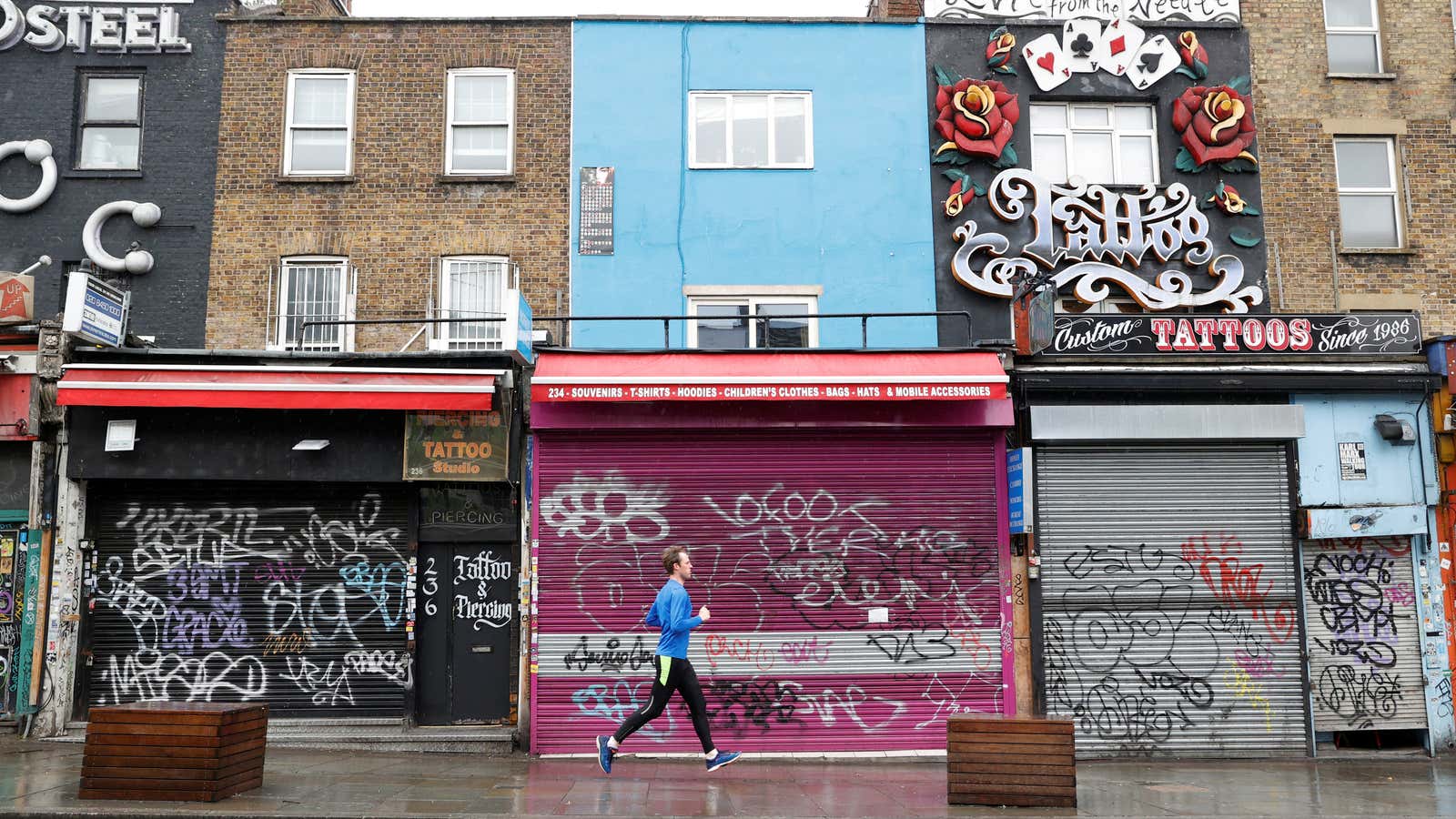Scenes of Brits flouting lockdown restrictions have been widely reported on in the UK press. That includes queueing up in long lines for ice cream during unseasonably warm weather, sunbathing in the park, and going for dips in the still-brisk sea. While these images might reinforce a stereotype that people in the UK are bona fide lockdown rebels, new data suggests otherwise.
Brits express more apprehension about easing the lockdown than any other major country, according to a recent Ipsos MORI poll that surveyed some 28,000 people across 14 different countries. That includes places like the US and Italy, which have both a higher number of Covid-19 deaths and confirmed coronavirus cases.
Some 71% of Brits also said they expect to feel nervous about leaving their homes when businesses reopen and restrictions on personal movement are lifted. That’s well above other major European countries: 63% of French citizens said the same, as did only 44% of Germans.
The Ipsos survey was carried out between April 16-19, about a week after the UK reported its highest daily number of hospital deaths to date. It also came soon after prime minister Boris Johnson was discharged from hospital following treatment for Covid-19. Johnson was the first world leader to confirm he tested positive for coronavirus, and his illness may have been on people’s minds during this period.
Still, while Brits vocalized their opposition to lifting restrictions in higher numbers, their behavior doesn’t appear to differ much from other nationalities. Data from Apple’s Mobility Trends Report, which tracks global changes in the number of people who look up directions on Apple Maps, shows the UK closer to the middle of the pack.
In any case, an outright majority in seven of the countries polled think businesses should not reopen until coronavirus is fully contained, particularly in rich states like the UK, Canada, Japan, and Spain. The US and Germany appear less concerned, as do poorer countries—such as India, China, and Russia—which are eager to get business moving again.
These preferences might shift as national economies continue to decline. Spain today posted a 5.2% drop in first-quarter GDP, and France entered a recession. Back in the UK, consulting firm EY has warned that it will take three years for the domestic economy to recover from the pandemic.
